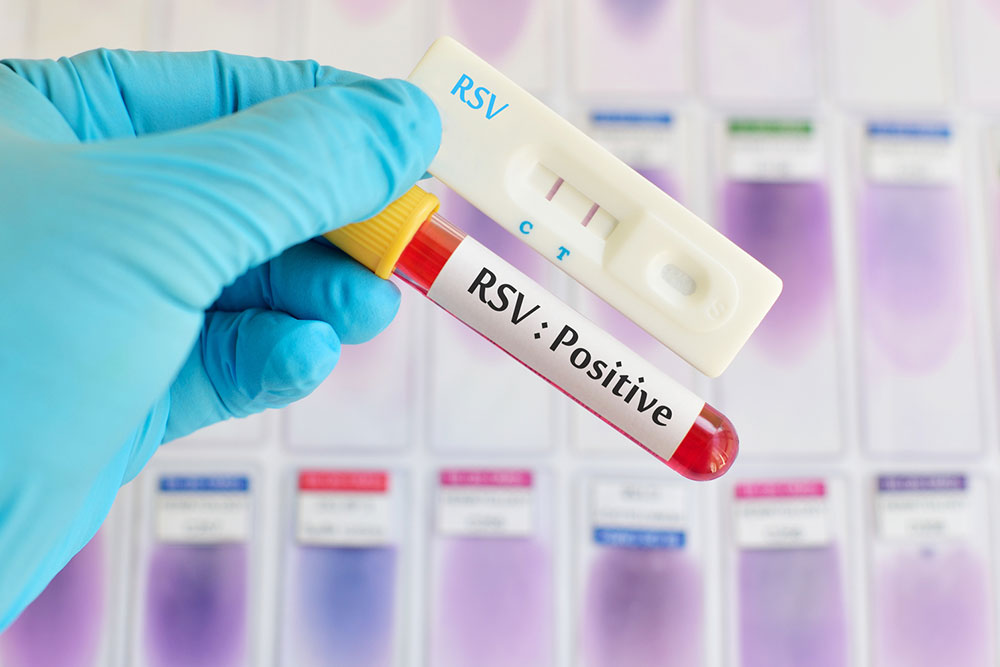9 ways to improve immunity against severe respiratory viruses

Viruses are tiny infectious agents that can cause a wide range of illnesses, from the common cold and flu to more severe diseases. Enhancing immunity against these respiratory viruses is crucial for both public and personal well-being. A robust immune system is the body’s natural defense against infections, and there are several strategies to boost its function. So, here is a look at some of the best ways to boost immunity against viruses:
Vaccination
Vaccination is one of the most effective ways to enhance immunity against dangerous respiratory viruses. Vaccines help the immune system recognize and respond to specific pathogens, creating a memory that allows the body to defend itself more effectively in case of exposure to disease-causing microbes. Annual flu vaccines, for example, help protect against influenza, while COVID-19 vaccines have been developed to combat the SARS-CoV-2 virus. For instance, the Novavax COVID-19 vaccine (NVX-CoV2373) is one of the options. It uses protein subunit technology to stimulate the immune system response to the SARS-CoV-2 virus. This technology involves using a nanoparticle that mimics the spike protein found on the virus’s surface. By introducing this protein to the body, the vaccine triggers an immune reaction, creating antibodies and memory cells that can recognize and defend against the actual virus. Clinical trials have demonstrated the vaccine’s efficacy to be around 90%.
As a protein-based vaccine, NVX-CoV2373 is an alternative to the mRNA and viral vector vaccines already in use. The mRNA vaccines gives cells instructions for making a protein that produces immunity against specific microbes.
This diversity in vaccine technology provides options and flexibility, potentially addressing individual preferences and health considerations. It is also noted by experts that the vaccine has mild side effects on individuals, so one should look out for symptoms like pain or tenderness, redness and swelling, fatigue, headache, muscle pain, joint pain, nausea/vomiting, and fever. Here, staying up-to-date with recommended vaccinations is important for seeking prompt immunization against viruses.
Balanced nutrition
A well-balanced meal plan rich in essential vitamins is fundamental for a strong immune system. Here, key nutrients are vitamins (such as A, C, D, and E), minerals (like zinc and selenium), and antioxidants. These nutrients support immune cell function, antibody production, and overall immune response. So, incorporating a variety of fruits, vegetables, lean proteins, whole grains, and healthy fats into meals can help the immune system get the nutrients it needs. For instance, citrus fruits like oranges, lemons, and grapefruits are great sources of vitamin C, which is known for its immune-boosting properties. Additionally, foods like spinach, kale, and Swiss chard are rich in vitamins and minerals, which are important for immune function.
Adequate hydration
Proper hydration is often overlooked but plays a vital role in immune function. Water helps transport immune cells and antibodies throughout the body, ensuring they can reach infection sites efficiently. Further, staying adequately hydrated supports mucous membranes’ integrity, which serves as an initial barrier against respiratory pathogens. So, one should have at least 8 glasses of water per day to avoid dehydration.
Regular exercise
Regular physical activity offers many health benefits, including immune system enhancement. Exercise can promote healthy circulation, reduce inflammation, and improve overall immune function. Further, physical activity also lowers the risk of lifestyle-related conditions like diabetes, which are known to weaken the immune system over time. Here, one should aim for at least 150 minutes of moderate-intensity exercise per week, along with strength training exercises.
Good quality sleep
Getting sufficient, high-quality sleep is essential for immune health. While asleep, the body produces and releases cytokines—proteins vital for immune response. Poor sleep can lead to chronic inflammation and a weakened immune system. So, one should aim for 7 to 9 hours of quality sleep each night to optimize immune function.
Stress management
Long-term stress can have a negative impact on the immune system, making the body more susceptible to infections. Here, relaxation techniques like deep breathing, meditation, yoga, and mindfulness can lower stress levels and improve immune function. Further, one can consider indulging in a hobby to lower stress.
Good hygiene
Practicing good hand hygiene is a great way to prevent the spread of respiratory illnesses. Here, one should regularly wash their hands with soap and water for at least 20 seconds, especially after coughing, sneezing, or touching public surfaces. If soap is unavailable, one may use a hand sanitizer. Additionally, one should ensure good respiratory hygiene, which involves covering the mouth and nose with a tissue or elbow when coughing or sneezing. Disposing of used tissues immediately and washing hands afterward is also important for reducing the spread of respiratory droplets containing viruses into the air.
Social distancing
One should limit close contact with those who are sick. Further, if one is sick, they should avoid contact with others to prevent virus transmission. Such social distancing measures can be particularly crucial during outbreaks to prevent the spread of infections. Additionally, wearing masks, especially in crowded outdoor or indoor settings, can reduce the spread of respiratory viruses, protecting both the wearer and those around them.
Gut health maintenance
The gut microbiome plays a key role in boosting immune function. Here, opting for foods with probiotics and prebiotics can help maintain a healthy gut microbiome, which, in turn, supports immune health. One should consult a doctor before starting with any supplements to boost immunity.
A comprehensive approach to health, consisting of immunization, good nutrition and hygiene, and lifestyle changes, can help build a strong immune system to protect one from severe respiratory illnesses. However, if one is dealing with health conditions or concerns that affect overall immunity, they should consult a doctor and seek guidance on finding suitable alternatives for improving immune system health.
Sources
https://www.yalemedicine.org/news/novavax-covid-vaccine
https://www.cdc.gov/nccdphp/dnpao/features/enhance-immunity/index.html







